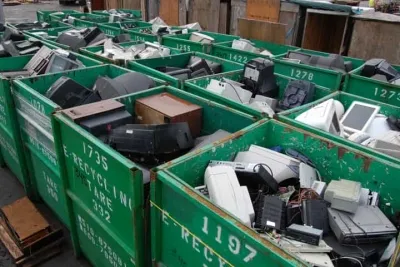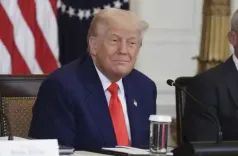Did the Cabinet Approve a Rs 1,500 Crore Incentive Scheme for Critical Mineral Recycling?

Synopsis
Key Takeaways
- The Union Cabinet approved a Rs 1,500 crore incentive scheme.
- The scheme focuses on recycling critical minerals.
- It aims to enhance domestic supply chain resilience.
- Both established and new recyclers will benefit.
- The scheme is expected to create around 70,000 jobs.
New Delhi, Sep 3 (NationPress) The Union Cabinet, led by Prime Minister Narendra Modi, has granted approval for a Rs 1,500 crore incentive scheme aimed at enhancing the country's recycling capabilities for the extraction and production of critical minerals from secondary sources.
This initiative is a component of the National Critical Mineral Mission (NCMM), which seeks to bolster domestic capacity and resilience in the supply chain of critical minerals. The entire critical mineral value chain—encompassing exploration, auctioning, mine operationalization, and foreign asset acquisition—requires time before it can effectively supply these minerals to Indian industries. According to an official statement, a prudent approach to ensure supply chain sustainability in the short term is through the recycling of secondary sources.
The scheme will span six years, from FY 2025-26 to FY 2030-31. Eligible feedstock includes e-waste, Lithium Ion Battery (LIB) scrap, and other scrap materials such as catalytic converters from end-of-life vehicles. Both large established recyclers and small new recyclers, including start-ups, are expected to benefit, with one-third of the total scheme allocation set aside for smaller entities.
This initiative will apply to investments in new facilities as well as the expansion, modernization, and diversification of current operations. The scheme will incentivize the recycling value chain, which is crucial for the extraction of critical minerals rather than merely focusing on black mass production.
The incentives will feature a 20 percent Capex subsidy on plant and machinery, equipment, and associated utilities for initiating production within a specified timeline, after which a reduced subsidy will apply. Additionally, an Opex subsidy will offer incentives based on incremental sales over the base year (FY 2025-26), with 40 percent of eligible Opex subsidy in the second year and the remaining 60 percent in the fifth year from FY 2026-27 to FY 2030-31, contingent upon meeting specified incremental sales thresholds.
To reach a larger number of beneficiaries, the total incentive (Capex plus Opex subsidy) for each entity will be capped at Rs 50 crore for large companies and Rs 25 crore for smaller ones, incorporating a ceiling for the Opex subsidy of Rs 10 crore and Rs 5 crore, respectively.
In terms of anticipated outcomes, the scheme is projected to establish at least 270 kilo tons of annual recycling capacity, leading to the production of approximately 40 kilo tons of critical minerals annually, generating around Rs 8,000 crore in investments and creating close to 70,000 direct and indirect jobs. The formulation of the scheme involved extensive consultations with industry representatives and other stakeholders through dedicated meetings and seminars, as noted in the statement.








